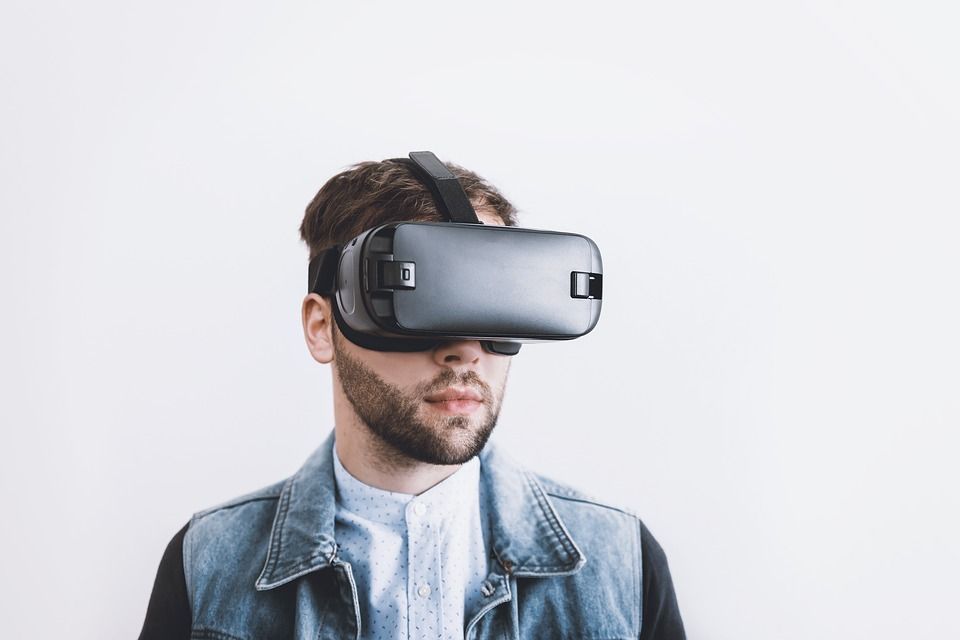It’s that time again. Facebook’s annual Oculus Connect event has just concluded and a surprising list of new features and games have been announced.
Although the event didn’t include any new consumer hardware, Facebook did take the opportunity to re-affirm its vision for the future of Oculus, including a series of planned software updates that make the Oculus Quest a much better beast than many previously anticipated it could ever be.

Rift S Owners Left High and Dry
Among the major announcements is a new feature known simply as ‘Oculus Link.’ Oculus Link will allow Oculus Quest owners to connect their device to a VR-ready computer using a single USB-C cable. Once connected, the Quest will be capable of playing Oculus Rift games with no apparent restrictions—inside out tracking and all. The new update will make the Oculus Quest a much more complete competitor to HTC’s recently announced VIVE Cosmos headset launching on October 3rd. A handful of new games were also announced at the event, including a sequel to the massively popular Vader Immortal game, as well as an Oculus exclusive Medal of Honor: Above and Beyond by Respawn. As many Oculus users are aware, the device can hardly be considered a hub of social innovation—despite being produced by the company behind the world’s largest social media network. This is all about to change with the next year’s release of Facebook Horizon—a social VR hub that is designed to bring Facebook-like features to virtual reality. Throughout the event, there was suspiciously little mention of its other consumer headset—the Rift S. Because of this, it now appears that Facebook is now looking to make the Quest its flagship product, leaving Rift S owners twiddling their thumbs.
New Features Aplenty
In the announcement, Facebook revealed plans to add a native hand to the quest through an upcoming update. The new feature will use the Quest’s built-in cameras to enable model-based hand tracking while using deep learning to improve the fidelity. Previously, Oculus owners would be required to purchase an external finger tracking solution, such as the Magic Leap, along with a mount for their respective headset if they wanted to interact in VR without a controller. This new update should allow users to easily navigate menus and interact with games in a much more natural way. Besides this, Facebook also mentioned that many Oculus Go apps will soon be compatible with the Quest, with users having the opportunity to upgrade to the Quest version at no extra cost until the end of the year. Facebook also revealed two new iterations of its 2018 ‘half-dome’ prototype headset. The new headsets feature an innovative new alternative to prescription lenses, using an actuated varifocal system which can be used to manually adjust the focus of the device. This should make the device much more comfortable for long-term use, reducing eye strain and the fatigue often associated with VR. The headset provides a vision of what Facebook is looking to achieve in the future, though no details were provided about when we can expect to see the new feature in a consumer device. What do you think about the Quest’s upcoming new features? Is the Rift S now deprecated? Let us know your thoughts in the comments below!Images are courtesy of Pixabay, Shutterstock.
Disclaimer
In adherence to the Trust Project guidelines, BeInCrypto is committed to unbiased, transparent reporting. This news article aims to provide accurate, timely information. However, readers are advised to verify facts independently and consult with a professional before making any decisions based on this content. Please note that our Terms and Conditions, Privacy Policy, and Disclaimers have been updated.

Nicholas Pongratz
Nick is a data scientist who teaches economics and communication in Budapest, Hungary, where he received a BA in Political Science and Economics and an MSc in Business Analytics from CEU. He has been writing about cryptocurrency and blockchain technology since 2018, and is intrigued by its potential economic and political usage.
Nick is a data scientist who teaches economics and communication in Budapest, Hungary, where he received a BA in Political Science and Economics and an MSc in Business Analytics from CEU. He has been writing about cryptocurrency and blockchain technology since 2018, and is intrigued by its potential economic and political usage.
READ FULL BIO
Sponsored
Sponsored
